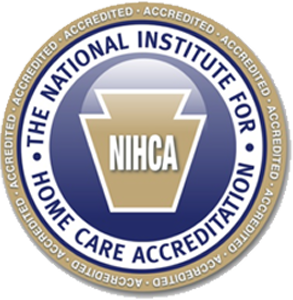
Understanding the differences between dementia vs. Alzheimer’s is vital for families making care decisions. Dementia is an umbrella term that includes various types of cognitive decline, of which Alzheimer’s is the most common form. This distinction is crucial when planning care and support for loved ones.
Our agency specializes in in-home care in New Jersey, providing personalized assistance to residents within the comfort of their homes. We recognize the unique challenges faced by those living with dementia and Alzheimer’s. Our team members are trained specifically to manage and support these conditions, offering care, compassion, and understanding. Our goal is to enhance the quality of life for both our residents and their family members by ensuring a familiar and comfortable environment for their daily lives.
In addition to our in-home care, we also provide professional home health aide services. This aspect of our care focuses on offering specialized support tailored to the specific needs of our residents. Whether it’s assistance with daily activities, medication management, or cognitive exercises designed to slow the progression of symptoms. Through our dedicated services, we strive to create a feeling of trust and safety, fostering a positive and nurturing atmosphere for everyone involved.
Impact on Memory and Cognitive Functions
Dementia affects the individual’s ability to think, remember, and reason. It’s not a specific disease but rather a general term that covers a wide range of specific medical conditions, including Alzheimer’s disease. Memory loss is often one of the first signs of dementia. However, Alzheimer’s not only leads to memory loss but also affects specific aspects of cognition profoundly and progressively, such as the ability to carry out simple tasks, recognize familiar faces, or solve problems.
With Alzheimer’s, memory loss is more pronounced and tends to involve recently learned information initially before gradually affecting older memories as the condition progresses. Conversely, other forms of dementia might impact problem-solving or attention before memory.
Progression and Stages
The progression of dementia can vary widely, depending on the underlying cause and the individual. It might progress slowly over the years or much more quickly. Alzheimer’s disease also follows a progression, typically categorized into mild (early-stage), moderate (middle-stage), and severe (late-stage). Each stage comes with a deeper level of memory loss and cognitive impairment.
Alzheimer’s disease progresses predictably in most individuals, gradually eroding memory and cognitive functions. Other types of dementia might have a more variable progression, with symptoms fluctuating or even improving temporarily.
Causes and Risk Factors
While the exact cause of Alzheimer’s disease remains unclear, it’s associated with a combination of genetic, lifestyle, and environmental factors that affect the brain over time. Abnormal buildups of proteins that form amyloid plaques and tau tangles are hallmark characteristics of Alzheimer’s, which block communication among nerve cells and disrupt processes that cells need to survive.
Dementia, being a more general category, has several causes — from Alzheimer’s disease to vascular dementia (caused by bleeding or blood vessel blockage in the brain), Lewy body dementia (associated with abnormal protein deposits in brain cells), and others. Risk factors for dementia include age, family history, heart health, and injuries to the brain. Alzheimer’s specific risk factors parallel closely but include certain genetic aspects that can increase susceptibility.
Neuropathological Differences
The brain’s structure can show distinct signs when comparing dementia and Alzheimer’s disease. Dementia-related changes in the brain can occur due to different diseases; accordingly, the brain’s structure may vary. Vascular dementia, for example, results from conditions that block or reduce blood flow to the brain, possibly showing evidence of strokes or damage to the brain’s white matter. On the other hand, if abnormal proteins known as Lewy bodies are present, doctors may identify it as Lewy body dementia.
Alzheimer’s disease features explicitly two abnormal structures: plaques and tangles. Plaques are clumps of a beta-amyloid protein that damage and destroy brain cells in several ways, including interfering with neuron-to-neuron communication. Tangles are twisted fibers of a tau protein that build up inside cells. These tangles block the transport system, and nutrients can’t move through cells, which causes them to die. The disease progresses as more plaques and tangles accumulate, and the brain tissue shrinks significantly.
Symptoms and Diagnosis
Pinpointing dementia and its types, including Alzheimer’s disease, relies heavily on symptom observation and cognitive tests. Memory problems that disrupt daily life are common symptoms in both dementia and Alzheimer’s disease. However, Alzheimer’s patients may also experience difficulties with language, misplacing items or becoming lost in familiar places, and impaired judgment. Other forms of dementia might present symptoms such as movement difficulties or changes in personality or social behavior depending on the area of the brain affected.
Diagnosis of Alzheimer’s disease or other dementias can be challenging, but modern diagnostic tools have improved. A doctor will evaluate medical history, perform physical and neurological exams, and conduct cognitive and memory tests. Imaging tests like MRI and CT scans can detect brain changes indicative of Alzheimer’s or other dementias. Biomarker tests for beta-amyloid and tau proteins in the cerebrospinal fluid can also support an Alzheimer’s diagnosis.
Creating Memories in New Jersey
There’s no map for dealing with dementia or Alzheimer’s. Every story is individual. Every challenge is unique. Yet, in navigating this journey, no one has to walk alone. Contact us, and let’s discuss how our home health aide services could provide the in-home care your loved one needs in New Jersey.
The level of care your loved one receive depends on their needs. We have the healthcare pros to make that perfect fit and keep them safe & content right at home!
We offer:
- Daily Living Assistance; including things like bathing & dressing
- Transportation Services
- Housekeeping
- Companionship Services; including recreation & conversation
- AND MORE!
Get in touch with us! We’ll be happy to set up an appointment to assess your situation and offer the services you need for your loved one to live their best life!
We offer:
- Daily Living Assistance; including things like bathing & dressing
- Transportation Services
- Housekeeping
- Companionship Services; including recreation & conversation
- AND MORE!





